Ministry of Sustainable Development responds to APAMO
On Thursday, the Association of Protected Areas Management Organizations, APAMO, held a press conference to voice complaints about proposals made by the Ministry of Sustainable Development and Climate Change. On June twenty-fifth, the organization sent a seven-page letter to the ministry voicing these complaints, however, they were met with no response. That is until today. We spoke with C.E.O. Kenrick Williams, who told us that the complaints from APAMO have been heard and that the ministry is working carefully to address them.
Britney Gordon, Reporting
After weeks of going unheard by the Ministry of Sustainable Development and Climate Change, the complaints made by the Association of Protected Areas Management Organizations are being addressed. On Thursday, APAMO held a press conference to reiterate concerns previously outlined in a seven-page letter to the ministry that went unanswered. Today, the CEO Kenrick Williams says they have been heard loud and clear. He explains that the ministry is currently revising strategies to strengthen collaboration and facilitation between the government and comanagers, however, he acknowledges the need for clear communication between the parties at all stages of the process.
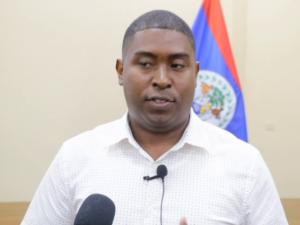
Kenrick Williams
Kenrick Williams, CEO, Ministry Sustainable Development & Climate change
“So we came with initial consultations, initial engagement to say to the pro co-managers, this is what government is looking at. Let’s give us some initial feedback. No, I recognize that. Maybe the approach, maybe the timeline, the notification. Definitely some guts in the communication from our side and we acknowledge that. And so we are going to continue to make sure that as we go through this process is really just a start. This is not the final draft and say, here you go, give me your input, what part you fit in on this. This is the first part. This is what we are contemplating as a government to address all of those things. Coordination, the collaboration, ensuring that we get the financial investment, ensuring that government is able to meet its part of the bargain. And ensure that there is transparency and accountability on all parts of the partnership.”
Among the complaints voiced were difficulties in accessing funding and resources from the government. Eli Miller, Managing Director of Monkey Bay Wildlife Sanctuary, highlighted how this change affected fire relief efforts earlier this year.
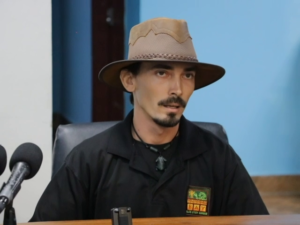
Eli Miller
Eli Miller, Managing Director, Monkey Bay Wildlife Sanctuary
“We had a lot of fires this year, and I will say it’s gonna happen again. We’re gonna have the consistent hotter, drier conditions coming. And as we’ve discussed with some of the ministers and the coordinator for Nemo. The highest, the best capacity for fire suppression and fire management believes rests with our co-management entities. They have rangers who deal with fire on an annual basis. And that’s where the, that’s where the knowledge lies. That’s how we’re gonna be able, those people are gonna be able to transcribe that knowledge to the communities who, those who don’t already have it, and we can be a better country for it. We can manage our fire situation better. And that doesn’t happen without some kind of support from government and some leadership as well.”
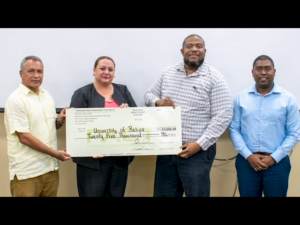 According to the ministry, PACT has since provided four hundred and sixty-one thousand dollars in emergency support for fire management. However, APAMO noted the difficulties in accessing grants over the past two years. Williams says that PACT and the ministry are working towards a solution.
According to the ministry, PACT has since provided four hundred and sixty-one thousand dollars in emergency support for fire management. However, APAMO noted the difficulties in accessing grants over the past two years. Williams says that PACT and the ministry are working towards a solution.
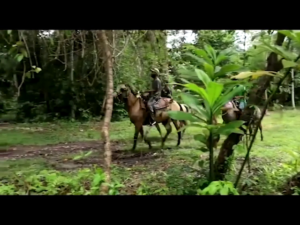 Kenrick Williams
Kenrick Williams
“PACT itself and its partners has Conservation Services. Has been trying to see how we are targeted in investment, so we’ve created a conservation investment program. That has been. We’ve been working with the protected areas co managers over the last two years to try to ensure that again. The point is that we have a little bit of money. So we have to make sure that we have the type of impact that we want to create from those investments. So we’re changing the way how we do that. That indeed has been taking some time. We’ve been working closely with the we’ve been working closely with our co managers, we’ve been working closely with the government partners, but that has largely been slow. The board recently took a decision that we need to fast track that process, and we’re going to be providing about a million dollars in bridge financing in the next two weeks or so in order to get some investments on the ground.”
Williams also maintains that the intention of the changes is not to micromanage the work of the co-managers, but rather improve the relationship between parties involved.
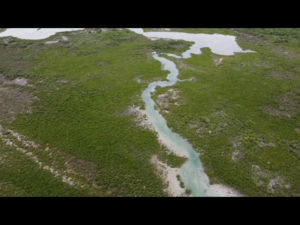 Kenrick Williams
Kenrick Williams
“There are responsibilities on both parts. Government as a regulatory agency have to make sure that there’s accountability, there’s transparency, there’s reporting. Right now that is a framework that is missing, right? We are not reporting against funds collected. We are not I cannot be able to go out and say or protected areas report against this or leverage this amount of money to the system.I know one figure put out was about 16 million, but there’s no clear report. We, government and co-managers can’t, have not been able to come together and say. This is a type of impact we’re having on the ground collectively and nationally. The intent, therefore, is not to micromanage, it’s to improve how we do things.”
Britney Gordon for News Five.






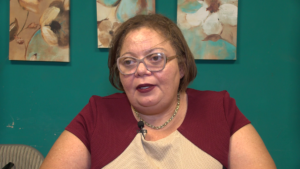
Facebook Comments